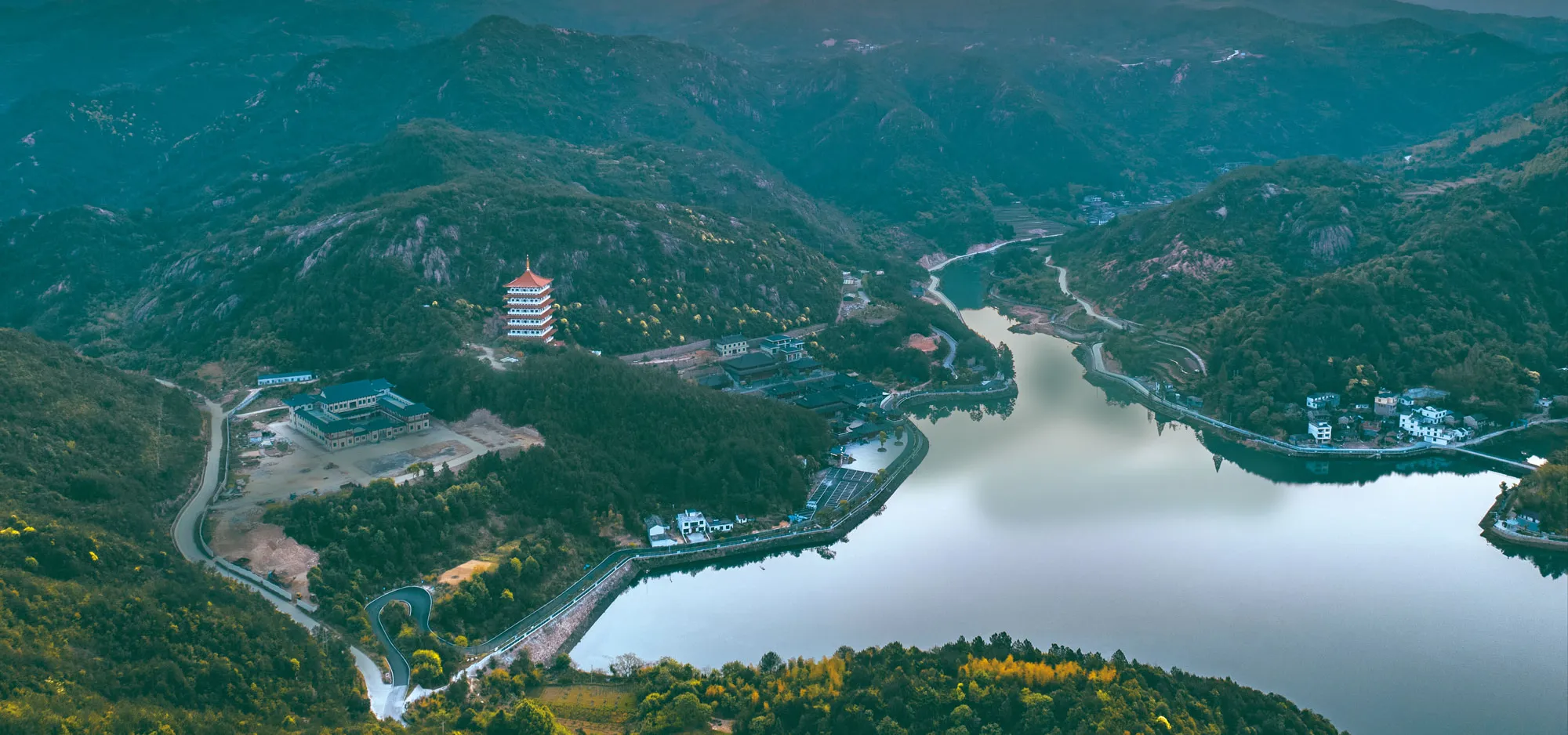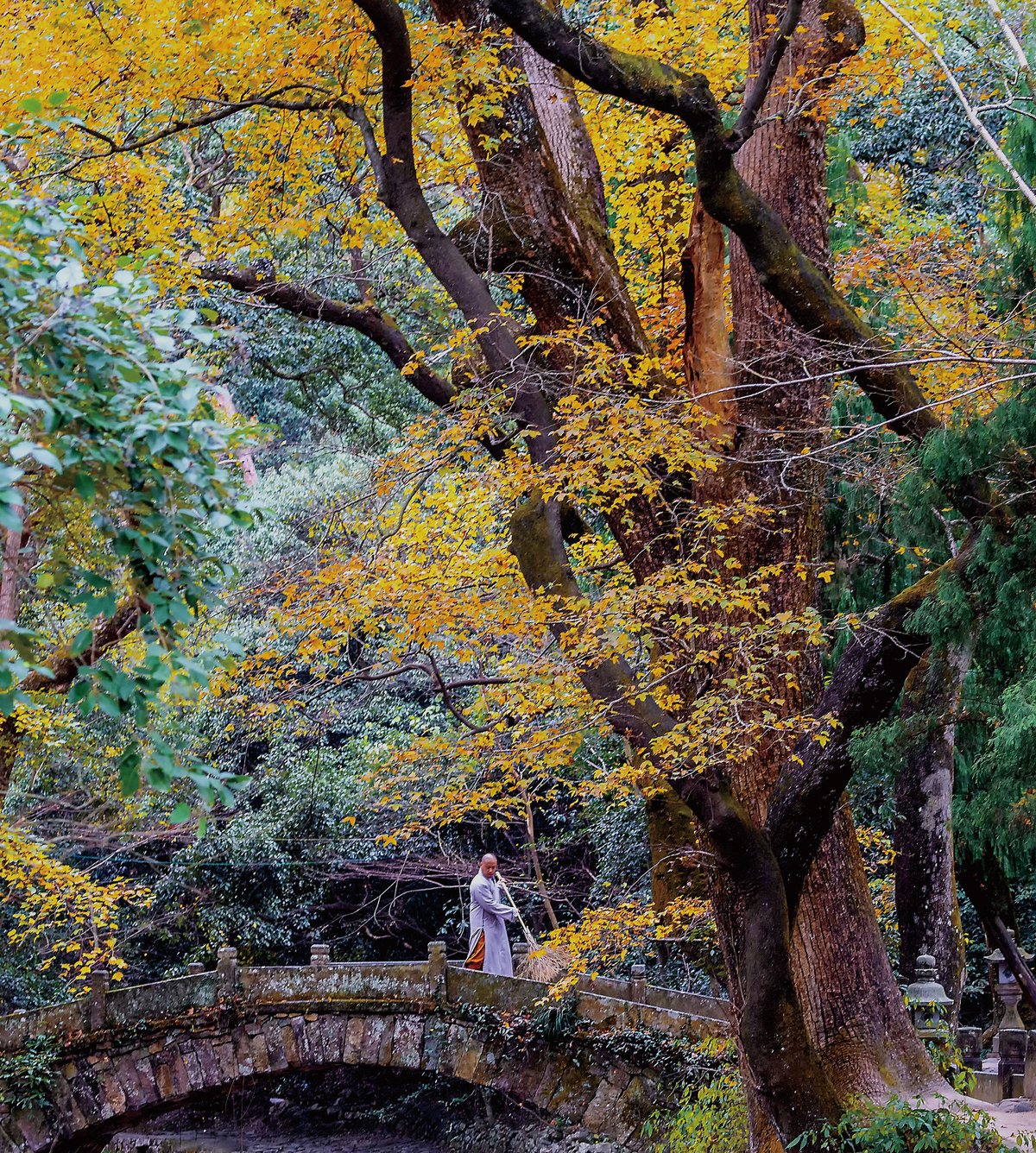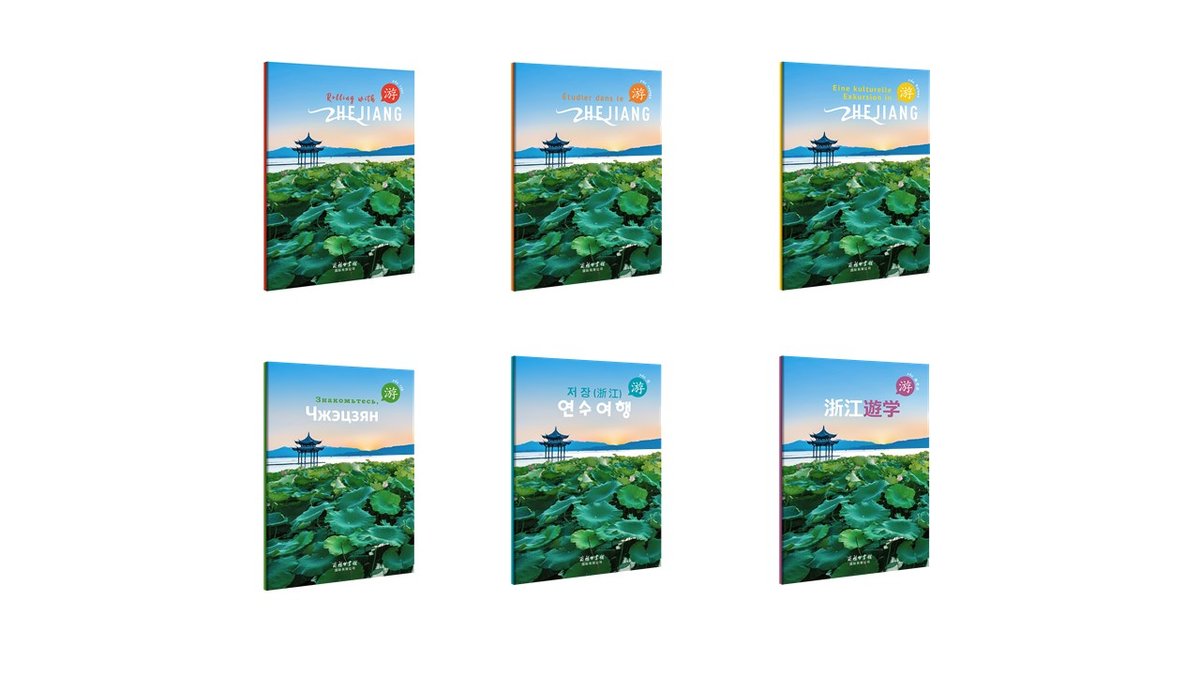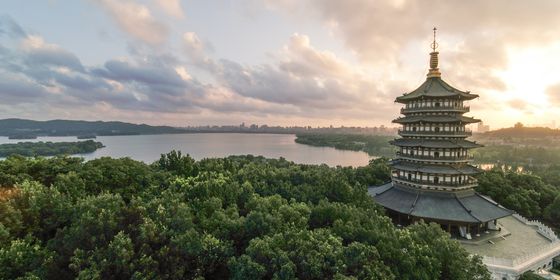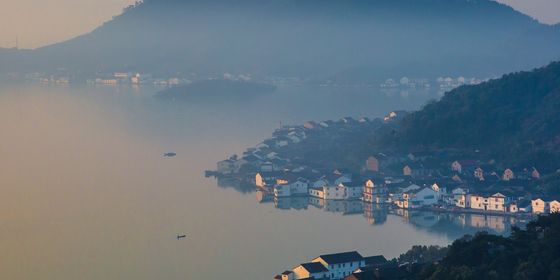Ancient Chinese poets couldn't stop writing about this mountain—here's why
It was the Tang dynasty (618 – 907), a golden age of ancient Chinese literary culture, and the Tiantai Mountains (天台山) were all the rage among Daoists, Buddhists, and eccentrics.
Poets, monks, hermits, artists, and scholars flocked to the mountain range in eastern Zhejiang, where it was almost a rite of passage for literati to visit the misted peaks and caves. The poet Yuan Zhen (元稹) wrote of an encounter with another poet, “We met, and spoke again of going to Tiantai.” In total, poets of the era left 1,200 poems chronicling Tiantai’s majestic and mysterious landscape.
Luckily for visitors today, Zhejiang province has begun the “Path of Poetry,” a project that retraces the region’s ancient poetic culture. The proposition is almost like a scavenger hunt, knowing that cave-dwelling hermits like Hanshan (寒山)—who later became a patron saint to Jack Kerouac, Gary Snyder, and the American Beats—have scrawled hundreds of verses directly onto Tiantai’s cliffs, in line with Daoist principles of namelessness and impermanence.
Modern historian An Zuchao calls Tiantai the “rich ore” of Tang poetry. As a former history teacher, he took his students to visit the sites of ancient poems, including Li Bai’s Tianmu Mountains (天目山), which are a northern extension of the Tiantai range. In “Ascending Mount Tianmu In A Dream,” the poet wrote, “My path twisted through a thousand crags...Below me, a bottomless void of blue...My heart was seized by fear and wonder.”
After 30 years of research, An sorted through all 50,000 surviving Tang poems to publish the anthology Tang Poetry of Tiantai in 2018, concluding that a mind-boggling ratio of one in 44 poems from the Tang dynasty refers to the Tiantai Mountains. “I want to render the poetic culture of Tiantai visible, to make people yearn for it,” An told a county newspaper upon his book’s publication.
The place to begin one’s explorations of Tiantai is Guoqing Temple (国清寺), one of China’s most important Buddhist establishments. It is a sprawling complex on the high slopes of a mountainous ravine, consisting of over 600 temples, halls, and gardens organized along five axes. The Guoqing Temple was founded in 598, and rebuilt in the Qing dynasty (1616 – 1911).
The temple is legendary in Buddhist history for birthing the eponymous Tiantai (Tendai) sect of Mahayana Buddhism. For centuries, devotees from across East Asia gathered at the temple to seek the dharma and brought the lessons back to their own countries, seeding new branches of Buddhism in Japan in the 7th century and Korea in the 11th century.
Among Guoqing’s cultural treasures are stone carvings, scriptures, calligraphy and paintings, wood carvings, jade ornaments, Buddha statues, and ancient scrolls in Sanskrit. Strolling through the stone courtyards, practicing monks in yellow-gray robes shuffle past in what is still an active site of worship, nearly a millennium and a half after it was founded.
The Guoqing Temple’s kitchen is said to be the former home of poet Hanshan’s companion Shide (拾得). Together, Hanshan and Shide were said to have reveled in the ravines near the temple, flouting strict meditation schedules to find pure ecstasy in nature. Later painters would draw them with ragged clothes and disheveled hair, laughing wholeheartedly. Notable nearby sites include the Shiliang Waterfall (石梁飞瀑) and Hanshan Lake (寒山湖).
Visitors today can follow in the footsteps of hundreds of literary eccentrics and luminaries in the Tiantai Mountains. While none have found the exact location of Hanshan’s cave dwelling on “Cold Mountain,” where he lived for over 30 years, the poet himself offered a crucial clue in one of his verses: “Men ask the way to Cold Mountain/ If your heart was like mine, you’d get it and be right here.”
Cover image from VCG
Excerpt taken from Rolling with Zhejiang, TWOC’s new booklet on tourism and language in Zhejiang province available in English, French, German, Russian, Korean, and Japanese. Get your digital copy today from our WeChat Store or iTunes Store!





